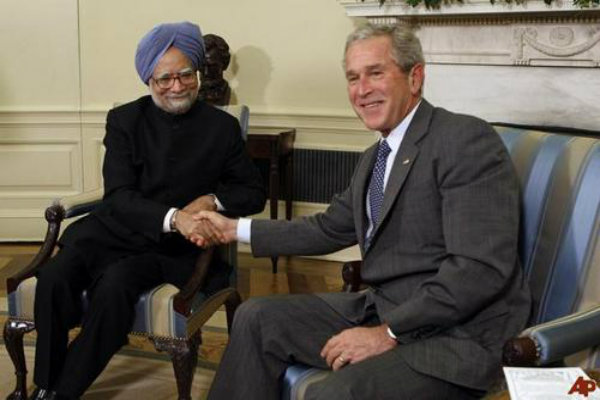
Aathira
NSoJ Bureau
The who’s who of India’s political and governmental circles have lately been taking to the pen to share their experiences as witnesses and participants to some of the most defining events that have shaped the country’s trajectory. Shivshankar Menon, India’s former National Security Advisor, perpetuates the trend with his recently published book, “Choices: Inside the Making of India’s Foreign Policy”. Menon participated in a discussion over his book with well-known historian Dr. Ramachandra Guha in Bengaluru. The duo touched upon various aspects of Indian diplomacy during their conversation, hosted by Bangalore International Centre.
Before assuming the post of NSA, Menon had donned several top diplomatic roles, including a stint as India’s Foreign Secretary during the first tenure of the Congress-led United Progressive Alliance. The Indo-US civil nuclear deal, therefore, figured prominently in the discussion. To Guha’s question on whether the deal was only of a symbolic nature, Menon responded, “It removed the biggest obstacle to the India-US relationship. It constituted recognition by the US for India as a nuclear power.” He is a proponent of nuclear energy as a safe and affordable method to generate electricity. Menon disagreed with Guha’s contention that India has the worst safety standards in the field of atomic energy.
The foreign policy expert also dwelled upon what was widely perceived to be a weak Indian response against Pakistan in the aftermath of the 26/11 terror attacks. He conceded that it is natural to respond emotionally but may not result in desired outcomes. He thus feels that the absence of retaliation was the right decision under the circumstances.
Lingering over the topic of cross-border terrorism and Pakistan, Menon held up the example of Israel’s diplomatic strategy of “mowing the grass”, which in essence means that the issue of terrorism needs attention on a regular basis. He viewed the inability to craft a proper relationship with Pakistan as the biggest foreign policy failure in independent India’s history. “And now I think, frankly, we are in for a long protracted war,” he said. However, he admitted that this failure has much to do with the neighbour’s internal structural issues. “Our problem is we are negotiating with many Pakistans,” Menon lamented, with reference to the civil-military-intelligence interplay in Pakistan’s governance and policies.
He is of the opinion that India follows a hollow foreign policy in the sense that the nation does not have a coherent plan on what kind of power it wants to be. India is extremely cautious in tactical terms.
When a member of the audience brought up the unrestrained media coverage of 26/11, compromising on security, Menon pointed at the lack of communication from the state as a part of the problem. “If you don’t feed the media, they will go out and get whatever they can. On 26/11, we were not saying what was happening. The government needs some kind of communication strategy in place,” he said, while adding that the free-for-all in the reportage of the terror attacks was terrible.
On being asked about the influence of technology on diplomacy, he said, “Technology makes no difference to what you really need to know. There is no replacement for old-fashioned diplomacy. It is a people’s business. Why does the G20 meet then?” he elaborated. For this reason, diplomacy is one of the oldest professions that has survived all technological changes.